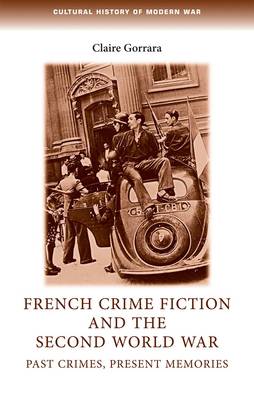
En raison d'une grêve chez bpost, votre commande pourrait être retardée. Vous avez besoin d’un livre rapidement ? Nos magasins vous accueillent à bras ouverts !
- Retrait gratuit dans votre magasin Club
- 7.000.000 titres dans notre catalogue
- Payer en toute sécurité
- Toujours un magasin près de chez vous
En raison de la grêve chez bpost, votre commande pourrait être retardée. Vous avez besoin d’un livre rapidement ? Nos magasins vous accueillent à bras ouverts !
- Retrait gratuit dans votre magasin Club
- 7.000.0000 titres dans notre catalogue
- Payer en toute sécurité
- Toujours un magasin près de chez vous
74,45 €
+ 148 points
Format
Description
This study explores France's preoccupation with memories of the Second World War through an examination of popular culture and one of its more enduring forms: crime fiction. It examines what such popular narratives have to tell us about past and present perceptions of the war years in France and how they relate to post-war debates over memory, culture and national identity.
Starting with narratives of the Resistance in the late 1940s and concluding with contemporary crime fiction for younger readers, Gorrara examines popular memories of the Second World War in dialogue with the changing social, cultural and political contexts of remembrance in post-war France. From memories of the persecution of Jews and French collaboration to the legacies of the concentration camps and the figure of the survivor-witness, all the crime novels discussed grapple with the challenges of what it means to live in the shadow of such a past for generations past, present and future.Spécifications
Parties prenantes
- Auteur(s) :
- Editeur:
Contenu
- Nombre de pages :
- 164
- Langue:
- Anglais
- Collection :
Caractéristiques
- EAN:
- 9780719095498
- Date de parution :
- 31-07-14
- Format:
- Livre broché
- Format numérique:
- Trade paperback (VS)
- Dimensions :
- 140 mm x 216 mm
- Poids :
- 208 g

Les avis
Nous publions uniquement les avis qui respectent les conditions requises. Consultez nos conditions pour les avis.






